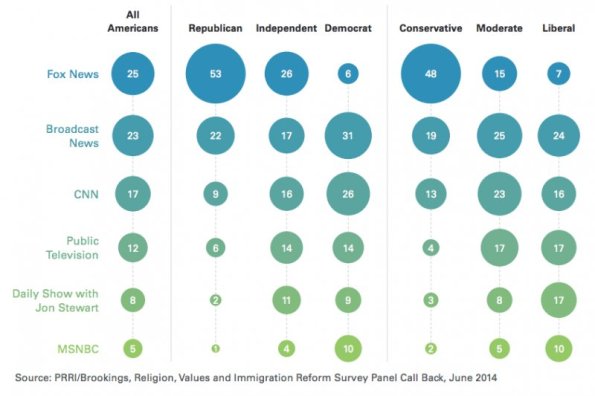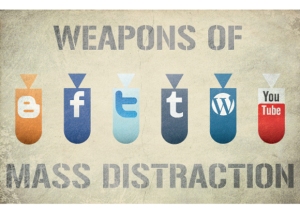The Weekly Grind
 Drink in the week’s most important stories — all in one place.
Drink in the week’s most important stories — all in one place.
FIRST SIP
‘Get out of my country’
Kansas man shot 2 men from India, killing one
 Alok Madasani, Srinivas Kuchibhotla and Ian Grillot were the victims of Wednesday’s shooting. (Photo by KCTV 5)
Alok Madasani, Srinivas Kuchibhotla and Ian Grillot were the victims of Wednesday’s shooting. (Photo by KCTV 5)
Shots were fired at an Olathe, Kansas, bar on Wednesday night. Witnesses said they heard suspect Adam W. Purinton, 51, shout “get out of my country” and other racial slurs before opening fire, shooting Alok Madasani, Srinivas Kuchibhotla and Ian Grillot. The three victims were taken to a local hospital, where Kuchibhotla died. Kuchibhotla and Madasani, both 32, are India natives who work for Garmin, the technology firm. Grillot, 24, tried to stop the shooter on Wednesday night. Although authorities have yet to identified Purinton’s motive for the attack, people across the country fear it could have something to do with the country’s current xenophobic climate. Police arrested Purinton early Thursday morning and the FBI continues to investigate if this was a hate crime. (ABC News, CNN, The Washington Post)
DARK ROAST
Famine is officially declared in war-torn South Sudan
 South Sudan’s hunger crisis was officially declared a famine on Monday. (Photo by The Washington Post)
South Sudan’s hunger crisis was officially declared a famine on Monday. (Photo by The Washington Post)
Years of civil war and political turmoil left about 100,000 people at the edge of starvation and almost 5 million people in need of urgent help. On Monday, representatives of UNICEF and the Food and Agricultural Organization issued a formal declaration of famine, meaning that people are dying of hunger. According to these agencies, half of the country will face fatal food shortages within the next six months unless they receive help. This problem has been years in the making, many calling it a “man-made tragedy” because of the country’s political climate. (CNN, The Washington Post)
Bomb threats target 10 Jewish centers across the country
Following the vandalism of over 100 headstones in a Jewish cemetery last weekend, yet another wave of bomb threats targeting Jewish community centers swept the nation. Centers in 10 states reported phoned-in threats. This is the fourth series of threats in the past two months. No one was injured and the Jewish Community Center Association of North America said the threats seem to be hoaxes, but federal authorities continue to investigate such threats as possible civil rights violations. (NBC News, NPR)
Trump appoints McMaster national security adviser
President Donald Trump appointed Lt. Gen. H. R. McMaster as his new national security adviser on Monday after Ret. Vice Adm. Bob Harward turned the job down. McMaster replaces Michael Flynn, who was fired last week for misleading Vice President Mike Pence about involvement with Russia’s ambassador. Harward had an impeccable resume, having worked on the NSC’s counterterrorism office from 2003-2005, but said he wanted time to focus on financial and family issues. Plus, Harward called the offer a “s*** sandwich” according to one of his friends. The White House’s chaos would be enough to steer anyone away. (The New York Times, CNN) Video
UNL suspends Fraternity Phi Kappa Psi until 2018
 UNL fraternity Phi Kappa Psi is suspended until December 2018. (Photo by Araya Santo for The Daily Nebraskan)
UNL fraternity Phi Kappa Psi is suspended until December 2018. (Photo by Araya Santo for The Daily Nebraskan)
The University of Nebraska-Lincoln suspended the Phi Kappa Psi fraternity because of “problematic alcohol use.” The fraternity was indefinitely suspended last December and has been under investigation by UNL and Phi Kappa Psi’s national headquarters. Both investigators found clear evidence of alcohol use in the chapter house and at off-campus parties. As a result of the official suspension, no current members of Phi Kappa Psi will be allowed to associate with the fraternity in the future and no one is able to occupy the chapter house until August 2019. (Lincoln Journal Star)
UNL’s Committee cuts $20,000 from The Daily Nebraskan’s budget
The University of Nebraska-Lincoln’s Committee for Fees Allocations voted on Thursday to overturn a decision to reset the allocation process from The Daily Nebraskan. This means the student newspaper will loose $20,000 from its budget. In addition, CFA chair Daniel Woodworth decided to remove CFA member Greg Dittman from The Daily Nebraskan’s subcommittee after a case of potential conflict of interest. Dittman actively advocated for the defunding of The Daily Nebraskan, which the CFA identified as “conflict of interest.” (The Daily Nebraskan)
LIGHT ROAST
Seven newly discovered planets may be one step closer to finding life in space
NASA astronomers recently found seven planets, about the size of earth, orbiting a dwarf star named Trappist-1. This is the first time they have found this many planets orbiting the same star. These planets also happen to be the perfect distance from the star to be habitable. Astronomers say this is the first strong evidence they have supporting alien life in space. (NY Times)
Woman purchases Girl Scout cookies with fake money
Some people will do anything for cookies. On Wednesday in west Omaha, one woman stopped at a Girl Scout booth and bought five boxes of cookies. She paid with supposedly the only money she had on her — a $100 bill. One Girl Scout mother was suspicious of possible counterfeit and police confirmed the bill was indeed a phony. (Lincoln Journal Star)
Are you smarter than a police officer?
Ohio fifth grader Lena Draper Facebook-messaged one Ohio police department about an emergency; she needed help with her math homework. The police department came to the rescue and proceeded to help her through some of the math problems. The responder, however, made a common error and gave Lena the wrong answer. (ABC News)
Here’s why Lincoln Public Schools won’t be affected by Trump’s action on transgender rights
On Wednesday, President Trump revoked a guideline on transgender rights set by President Barack Obama. It had allowed transgender students the right to use any bathroom with which they identify. The policies at Lincoln Public Schools and Nebraska’s School Activities Association will most likely not be affected by Trump’s action. This is because the revocation still allows schools to make their own decisions at the state level about their policies. LPS has used, and will continue to use a “team approach,” meaning faculty takes the necessary actions to meet the individual needs of their transgender students. (Lincoln Journal Star)
Ban lifted on law preventing teachers from wearing religious attire
A bill was passed this Wednesday in the Nebraska Legislature to undo the ban that states public school teachers can’t wear religious clothing. The constitutionality of the ban was in question because it did not give teachers freedom to express their religion. Sen. Ernie Chambers was the only senator who opposed the bill. He thinks that students should be in an environment with no religious expression. Others in favor of the bill argued that children should learn to accept other people with different cultures and religious backgrounds. (Lincoln Journal Star)
EXTRA SHOT
Apparently there’s something happening in Sweden we don’t know about…
In trying to make a point about large numbers of refugees connected to terror attacks, Trump mentioned something that “happened last night in Sweden” during his rally in Florida on Saturday. The thing is, nothing happened in Sweden. Despite a spokeswoman for the Swedish Foreign Ministry saying that authorities weren’t aware of any terror-related incidents on Friday, Trump supporters believe the media is trying to hide something from us. Trump later clarified that he was referring to a story that was broadcast on Fox News involving immigrants and Sweden. Still, he became the butt of many jokes on Twitter when the hashtag “#LastNightInSweden” started, mocking Trump’s fuzzy claims about a seemingly fictional event. (The Washington Post)



WHAT’S BREWING
- Keep your eyes open for Trump’s new travel ban. It is expected to be issued sometime next week. (ABC News)
- Next week is First Friday! Here are three exhibits you’ll want to check out:
Curated by Lindsey Yoneda and Alex Klemp
Advanced Editing Students at

Mistrust of the media can have harmful effects on the nation
Most Americans don’t trust news media.
In a 2014 Gallup poll, only 40 percent of those polled expressed a “Great deal/fair amount” of trust in news media, tying 2012 for an all-time low.
In an article in the Washington Post, Chris Cillizza points out the problem with this: “The natural result of that loss of faith in the news media is for people to seek out more partisan sources of information which they can ‘trust’ because the information being put out by those sites jibes with their particular point of view.”
Cillizza refers specifically to online news, which is certainly important in the age of blogs “reporting” news with a distinct bias, but this trend can even be seen in more traditional forms of media, like television news.
A study by the Public Religion Research Institute showed that Fox News is the most trusted source of news on television among 25 percent of all Americans and 53 percent of Republicans.
The problem with people seeking only news that matches their current opinions is obvious: if citizens can’t see controversial issues from more than one side, discussion will replaced by arguing and no progress will be made.
Many reasons exist for this distrust of media. One key factor, though, is the number of inaccuracies reported in an industry that is becoming more focused on getting the story first than on getting it right.
When many stories are broken on Twitter or Facebook long before an established news outlet, it’s understandable that the media would want to publish something quickly and make corrections later—especially because it is easy to correct information online.
But no matter what direction social media takes news media as a whole, it’s important for national discourse that Americans believe they can turn to news organizations for accurate, unbiased information, even if it challenges their own views.
So take the time to get it right.
-By Preston Thiemann
Actual news still triumphs over clickbait
We’ve all seen the articles – “25 Men’s Coats That Will Definitely Get You Laid” or “38 Things You Probably Don’t Know About ‘Hocus Pocus.’”
Thanks to BuzzFeed, in large part, our Facebook Newsfeeds are cluttered with clickbait headlines. But are these stories replacing real news in our lives? The analytics say no.
In an article posted on PR Daily recently, John David discusses “The race back to ‘actual’ news.” He’s talking to public relations professionals about how to pitch their stories to journalists, but he sends a good message to journalists as well, editors especially. Actual news with a fresh angle still sells better than clickbait. People want hard-hitting stories.
And Buzzfeed doesn’t just post fluffy pieces; it shares real news too.
Sites like Buzzfeed and Mashable, which started as social-sharing sites, are hiring journalists to produce what David calls “actual news” because it has “originality, relevance, and authenticity,” he said.
Beyond social-sharing sites, David mentions a column by New York Times reporter David Carr about The Washington Post’s revival since its purchase by Jeff Bezos, the founder of Amazon. Bezos’s approach to making The Post digital and saving it from perceived ruin was pumping energy in to actual news and “increasing sophistication in promoting its content nationally,” Carr writes.
The Post, in other words, is churning out hard-hitting investigate reporting — the kinds of stories some people believe are dying. Of course, the commitment to hard news was renewed when the newspaper posted articles based on leaks from former National Security Agency contractor Edward Snowden, which won The Post a Pulitzer Prize.
There were whispers not too long ago that The Post wouldn’t survive the shift into the digital age, but Dean Baquet, executive editor of The New York Times, said “I think The Post is a very confident newsroom right now. They pick the right stories, throw a lot of reporters at them and go after them hard. That’s a well-led newsroom.”
Closer to home, and on a much smaller scale, the Daily Nebraskan has shifted to a digital first approach this year. And what have the senior staff at the DN found to work best? Locally focused, hard-hitting news.
“The articles about the big things that have happened on campus have all gone viral this year,” said Jacy Marmaduke, DN editor-in-chief. “We put a lot of hours in to breaking the sexual assault story, and then we continued to update online as more news broke and that really makes a difference.”
Updating as stories happen is one of the biggest benefits Marmaduke sees with digital.
“I think (instant updates are) the biggest advantage of digital,” she said. “It’s our job as journalists to inform the public about what’s happening around them. Digital helps us do that job better.”
Clickbait will always have a place in our lives. Some days readers just want to know the “17 Reasons It’s Better to Date a Dog Person,” but they also want those hard-hitting pieces and want them shared on social media.
—By Stacie Sikora
Data journalism can transform numbers into stories
The primary job of a journalist is to seek the truth and report it.
There’s often truth in numbers, but data can be scary to people who love words and often profess a hatred of math.
Using data journalism to create graphics and stories that visualize and add to data sets is a tool as essential to a reporter’s toolbox as a pen. As the Internet advances, so do the ways in which the media processes and reports numbers.
Matt Waite, a journalism professor at the University of Nebraska-Lincoln, said data should be used like any other source.
“You treat it like a source, you interview it like a source, you understand that, like a source, it has a point of view — it has flaws — it’s actually a very human thing,” Waite said.
Data journalism has existed since the 1960s, when computers the size of gas stations took days to compute simple equations. More than 50 years laters, such computing can be done in the palm of your hand.
Practiced correctly, data journalism can turn ordinary numbers into complex, emotional pieces of journalism. Take high school football, for example: Writing a story with only words about how many small-town Nebraska teams are left and the challenges those schools face — like travel time and mileage between towns — would not be interesting. Showing it, on the other hand, can add to the words.
That’s exactly what the Omaha World-Herald did with “the disappearance of small-town football,” a multi-media project. Using interactive maps, photos and text, the piece shows how small-town football teams are slowly dying in Nebraska.
As much as data can add to a story, journalists must be careful not to lie with numbers. Waite said data can lie by the “sin of commission or omission.”
“The old saying is that ‘if you torture data sufficiently, it will confess to anything,’” Waite said.
He gave the example of FiveThirtyEight, The New York Times’ statistics blog. The publication reported that kidnappings in Africa were on the rise. But, the blog was using the number of news reports of kidnappings to collect numbers, rather than numbers of actual kidnappings. It also did not provide sufficient context.
Even so, if used carefully, numbers hold great weight.
“(Data allows) the ability to see beyond three anecdotes and a quote,” Waite said.
Below, The New York Times shows just how visual data can be:
_By Reece Ristau
Journalists need to play curator role, not simply repeat social media

Michelle Hassler, University of Nebraska-Lincoln journalism professor and former Lincoln Journal Star state editor, said journalists should take more of a “curator” role.
It often seems as if the news media value being first more than they value being right.
The growth of social media and increased demands for journalists to post news quickly raises the question, “What should media’s role be?”
In coverage of the Boston bombing and the Sandy Hook shooting in Newtown, Connecticut, for example, the news media put out stories immediately, and most were completely incorrect.
The Slow Journalism Company, however, is hoping to change that.
Slow Journalism produces a magazine called Delayed Gratification, which takes stories “after the dust settles” and publishes them, according to its website. Each issue compiles stories from weeks or months earlier that tell what actually happened in a news event less the hype and bad reporting.
Michelle Hassler, University of Nebraska-Lincoln professor and former state editor at the Lincoln Journal Star, said that this is a good opportunity for people to see the whole event.
Hassler also said journalists need to back away from this “get-it-first mentality” and play more of a curator role.
“If journalists could step back, explain the issues and put them into context,” Hassler said, “people could understand the full scope of the story a lot better.”
A more productive method of covering the issues would be to explain the context and outline all sides, she said, and highlight what is new with those stories.
According to Slow Journalism, today’s “ultra-fast” news tells audiences what’s happening in real-time but rarely tells what it means.
“We take time to do things properly,” the Slow Journalism Company wrote on its website. “Instead of desperately trying to beat Twitter to the punch, we return to the values we all want from journalism – context, analysis and expert opinion.”
In the past 10 years, newsrooms and journalism, as a whole, have completely changed. Hassler said a journalist is now required to not only report, but also to tweet, blog, photograph, video and often self-edit. Journalists are sometimes evaluated on their speed than they are on their writing and reporting skills.
Someone will always be faster in getting the breaking news to the wide audiences. But not everyone has the training, resources and capabilities of constructing a well-researched article that explains the issues using a wide variety of sources and documents. And that’s where journalists, good editors and effective websites and print editions come in.
Yes, news media need to put a focus on their digital presence in today’s world, but they don’t need to put a focus on being first over effectively informing the public. Journalists are trained watchdogs not simply live tweeters. In order to remain relevant in today’s world, news media need to offer the public a product it can’t get via social media.
_By Natasha Rausch
Report smarter on social justice coverage
Being a slut isn’t a bad thing.
It’s a word used for power and control, according to the organizers of Slutwalk. But they’re trying to change that.

Slutwalk is an event where a group of volunteers make signs to protest blaming victims of sexual violence.
Lincoln, Nebraska, held its annual protest in front of the Nebraska State Capitol on Saturday to promote awareness of how people blame victims when they should blame perpetrators of sexual violence. Shayla Swift, an organizer for the event, said that people are looking at the wrong side of sexual and domestic violence.
“Sexual violence happens in our safe spaces regardless of what we’re wearing,” she said. “It happens in our safe places with people that we know.”
Slutwalk is not an organization. It is volunteers raising awareness against sexual violence and getting the word out that victims aren’t responsible regardless of whether they have been drinking or what kind of clothing they wear.
A key part of awareness is media coverage. How should social justice issues be covered? … Breast cancer awareness, for example, is something else affecting women. However, it gets much more coverage than victims of sexual violence.
“Breast cancer is a really easy thing to talk about because people really like breasts,” Swift said. “In all honesty, that’s a really easy cancer for people to raise money for.”
Breast cancer awareness and victims of sexual violence might be like comparing apples to oranges, but covering these events requires something from all reporters: compassion.
Another organizer of Slutwalk, Claire Baweja, enjoys press coverage but reminds reporters that it’s not just another feature story.
“They always come to us saying ‘hey do you know anyone that’s affected?’ It’s not something everyone wants to openly talk about,” Baweja said. “Some reporters … need to be aware of the kinds of questions they’re asking.”
While spreading awareness is the main goal for Slutwalk Lincoln, it’s important to do so correctly. Swift’s dad is a retired reporter, so she understands media coverage from both sides.
Swift said sometimes reporters try to sensationalize a story to make it the most emotional or captivating. It’s often an approach to just fill a person into the story. “If you’re a reporter and get on the scene knowing what the story is about you’ll lose the story every time,” she said.
The Institute for Justice and Journalism’s website has many tools for covering tough issues. Three of the tools media have used to better cover social justice include creation of a database, devising ways to work together and creating tutorials on reporting techniques.
Here are tips from Swift on reporting of sensitive and social issues:
- It’s better to ask the organizer if they know of anyone who was impacted who is willing to talk, rather than going up to possible victims directly.
- Be careful of word usage. ‘Trauma survivors’ is better than ‘rape victims.’
- Make the subject feel more comfortable. Ask questions about why they’re doing an event and whom they’re doing it for, instead of their life’s story.
Being a journalist is about being a voice for the people and reporting or editing impactful stories. Knowing how to handle sensitive, social justice issues is important.
Swift said about reporters talking to survivors, “I wasn’t sure that they were going to be able to convey that they really cared what happened to them…”
_By Nicole Rauner
Improper handling of domestic abuse hurts NFL brand
It took the NFL seven months to decide to suspend Baltimore Ravens running back Ray Rice after he knocked out his then girlfriend, Janay Palmer.
Ray Rice is not the only player to be involved in domestic abuse problems and not be punished in a timely manner by the NFL. Adrian Peterson, Greg Hardy and Jonathan Dwyer have each received light punishments for domestic abuse.
Adrian Peterson was charged with child abuse, and authorities say Greg Hardy choked his girlfriend.
Rice’s initial punishment was only a two-game suspension, and both Peterson and Hardy continued to be paid while they went through the legal process.
Now that Rice has received an indefinite suspension and NFL commissioner Roger Goodell has announced new personal conduct policies, many feel it is too little, too late.
Many have taken to Twitter with hashtags like, #BoycottNFL and #FireGoodell. The women’s rights group Ultraviolet even flew a banner reading, ‘Ultraviolet #GoodellMustGo,’ over the New York Giants, Arizona Cardinals game.
Goodell’s negligence on taking swift, appropriate action has hurt the NFL brand.
The NFL was already having public perception issues with the recent data on concussions. Rather than trying to hide these events, they should have immediately suspended these players without pay. They also should have been open and truthful with the public.
Had the NFL immediately suspended these players, informed the public and launched a campaign to stop and aid with domestic abuse things like #BoycottNFL and #FireGoodell may never have trended on Twitter.
_ Michaela Odens
Choosing the right story, writing the best narrative
Todd Cooper stumbled upon what would turn out to be a major scandal and news story while routinely covering court cases for the Omaha World-Herald.
But Cooper was originally going to tell a different story.
If it weren’t for a well-timed question, a burning curiosity and his editor, Cooper wouldn’t have told the story that sparked investigations and discussion of Nebraska’s prison system.
Readers would’ve read a different story entirely.
Five months ago, Cooper wrote about Quentin Jackson, a man convicted of shooting a bouncer at an Omaha nightclub. Jackson was attending a hearing on whether his conviction should be overturned in street clothes instead of prison garb. He had been let out of prison on a “day pass” – a pass inmates qualify for when they have less than three years left in their sentences.
The news peg for the story: Jackson had been sentenced to 14 to 15 years in prison but was to be released after only six years, Cooper said. He wrote the first story on deadline and said it questioned whether Jackson was going to be released earlier than he deserved.
After doing some digging and finding out that there was data to prove that Jackson would be doing less time than he was supposed to, Cooper was prepared to follow up with another story to prove the accuracy of his first story and expose the miscalculation of Jackson’s release date. But an itch to find out more and a conversation with his editor caused Cooper to wait.
His editor allowed him to do more research about other inmates and their release dates.
Cooper said he took “one month to crunch parole and release dates,” which led to the conclusion that 873 prisoners were given miscalculated sentences. The result? Cooper had a better story.
And the followup stories just kept coming.
Cooper wrote about something with an impact. He used reporting to expose inconsistencies and injustice – provoking discussion and forcing change.
“Always look for the better story,” Cooper said. Also important, he said, is to write the story in the best way. And according to Cooper, the only way to do that is to paint a picture with the details.
Cooper tells sources, “Take me back.” He asks, “What do you see? What do you smell?”
A journalist’s job is to get as close to the truth as possible, Cooper said. His goal is always to explain and to translate information for the public.
The process it took for Cooper to write a story of substance with tremendous impact provides the steps it takes to write the best story. It requires more than a bit of curiosity, the calculated skills of a good interviewer, and a willingness to follow the story wherever it leads.
And of course, the best story also requires a good editor.
– By Michaela Noble





